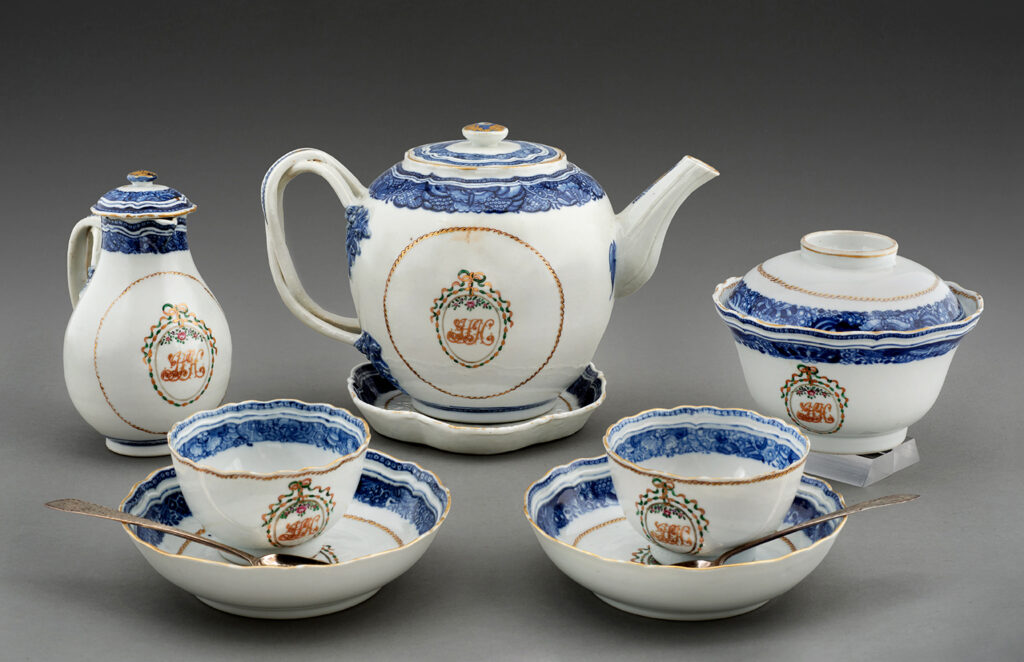The Ashley Family’s “commitment to tea-drinking”
Last month Historic Deerfield’s blog highlighted the consumption habits of the Rev. Jonathan Ashley (1712–1780), “Deerfield’s notorious Loyalist minister,” as the Revolution proceeded:
Speaking of tea, on Saturday, 14 December, the Lexington Historical Society will commemorate and recreate that town’s burning of local tea stocks in 1773, days before the Boston Tea Party. That event will take place at Buckman Tavern from noon to 3 P.M.
Reverend Ashley purchased his house lot in 1733 on the northern end of what is now Old Main Street. His successful career as a minister and his marriage into an elite Connecticut Valley family allowed him to emphasize his status through the furnishings and commodities with which he filled his home.Collections Care Technician and blog writer Samantha Frost drew on Elizabeth Stillinger’s Historic Deerfield: A Portrait of Early America (1992) for details about the Ashleys’ purchases.
Few objects in Historic Deerfield’s collection have Ashley provenance, though a 30-piece Chinese export porcelain tea set belonging to the Ashley family bespeaks not only their desire to “maintain sufficiently affluent standards of hospitality,” but also their commitment to tea-drinking as it fell out of favor during the American Revolution.
The tea set consisting of a teapot and teapot stand, sugar bowl, cream pot, pickle or sweetmeat dish, six teacups, coffee cups, and saucers is decorated in a blue “Fitzhugh” butterfly pattern with the initials “H.H.” in a gilded oval cartouche. The Fitzhugh pattern is thought to be derived from the English Fitzhugh family, who held several positions within the English East India Company and is characterized by underglaze blue with a medallion, spearhead and trellis-diaper border, and four floral groups. . . .
as imported teas became symbolic of loyalism during the American Revolution—because of the taxes that were imposed on tea in 1773—several colonists turned to locally grown teas such as raspberry leaf to replace the imports from the British East India Company. Coffee, though not a new commodity in British North America, likewise became a popular drink amongst colonists, as it was a hot, caffeinated beverage that did not represent British economic interests. . . . Reverend Ashley continued to support the Crown by importing tea.
Speaking of tea, on Saturday, 14 December, the Lexington Historical Society will commemorate and recreate that town’s burning of local tea stocks in 1773, days before the Boston Tea Party. That event will take place at Buckman Tavern from noon to 3 P.M.


No comments:
Post a Comment